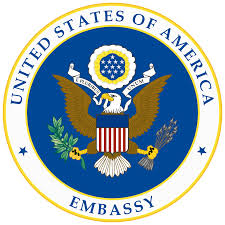The United States Consul General in Lagos, Will Stevens, speaks with TUNDE AJAJA about reasons for the backlog of visa applications:
Currently, interview appointments for fresh visa applications have extended to 2024 while we are still in 2022, is there a surge in the number of Nigerians seeking to travel to the US, or something else is responsible for this backlog?
We have a big backlog and we are working hard to dig into it. It has dropped quite a bit in the last two months. We have increased the eligibility for people to use what we used to call Dropbox, which is interview waiver. If you have had a visa that expired in the last four years, you don’t have to come in for an interview.
That window used to be two years, but now it’s four years. That means many more people don’t have to come in for an interview. We have also increased staffing by adding more people so we can deal with the surge.
Covid-19 really hit us in terms of staffing; some people left and we5 had to conduct interviews and go through the process. But now we are back to full staffing. I am optimistic6 that it may take some time but we will get there. I think there is an incredible demand and interest.
One of the things we have done is to prioritise key sectors, like student visas for people who want to travel on time for the September resumption and now for January.
We had a 12 per cent increase this year in the number of Nigerians studying in the US at almost 15,000, which puts Nigeria in the top 10 countries that send students to the US. It’s a6 wonderful thing; they go and study and they come back with deep connections to the US.
Talk of the Optional Practical Training, which enables them to work for some time after they graduate. I can’t tell you how many Nigerians who spent some time in the US working or studying and they brought that experience back to Nigeria. I think it’s a really good thing and we are right to focus on that.
The backlog is still there and we are working hard on it and I think we will get the figures down. But like I said, there is a decrease in the waiting time, and it has gone down quite significantly. For example, the wait time for B1/B2 has dropped from 740 days to 443 days.

